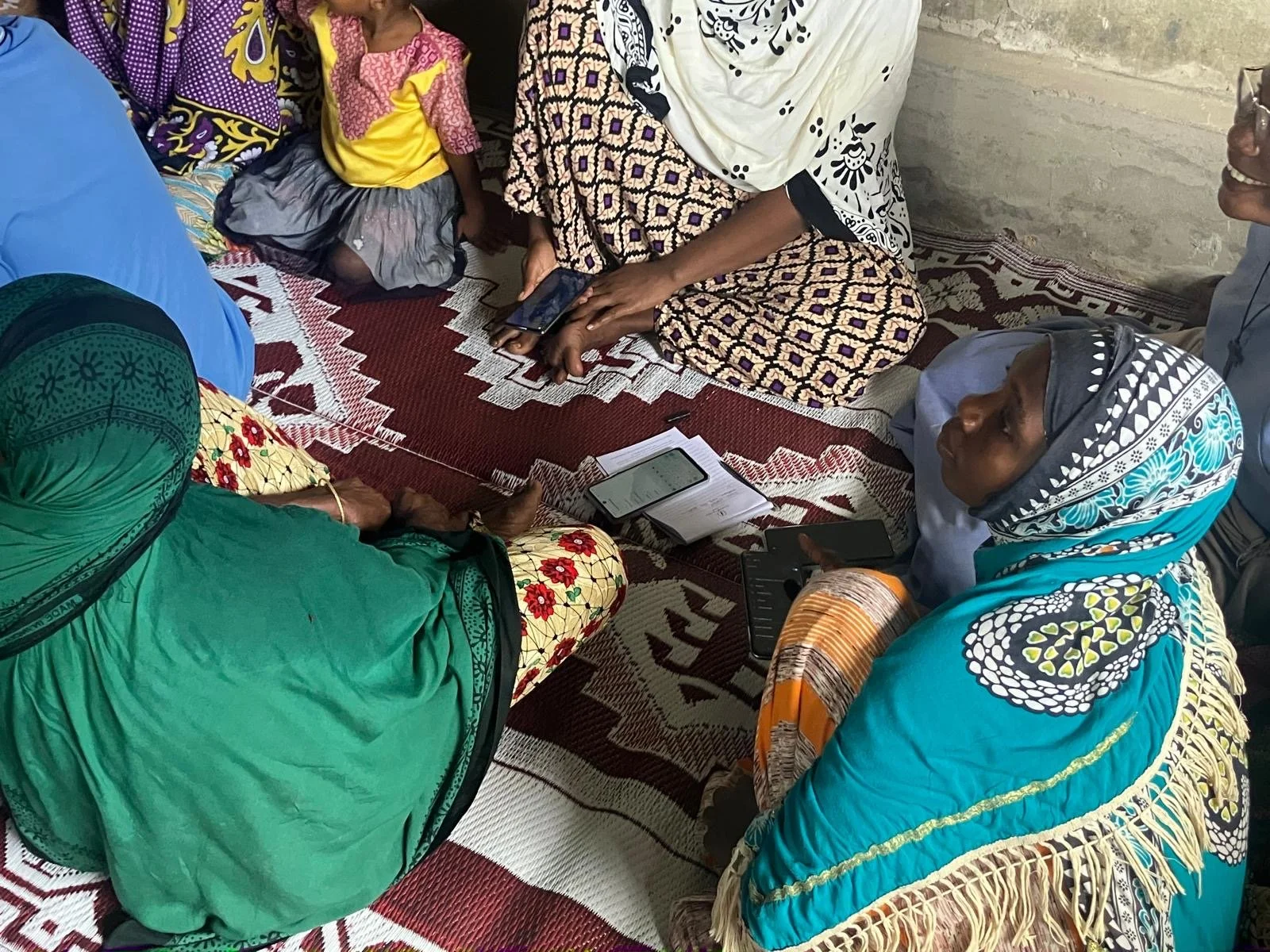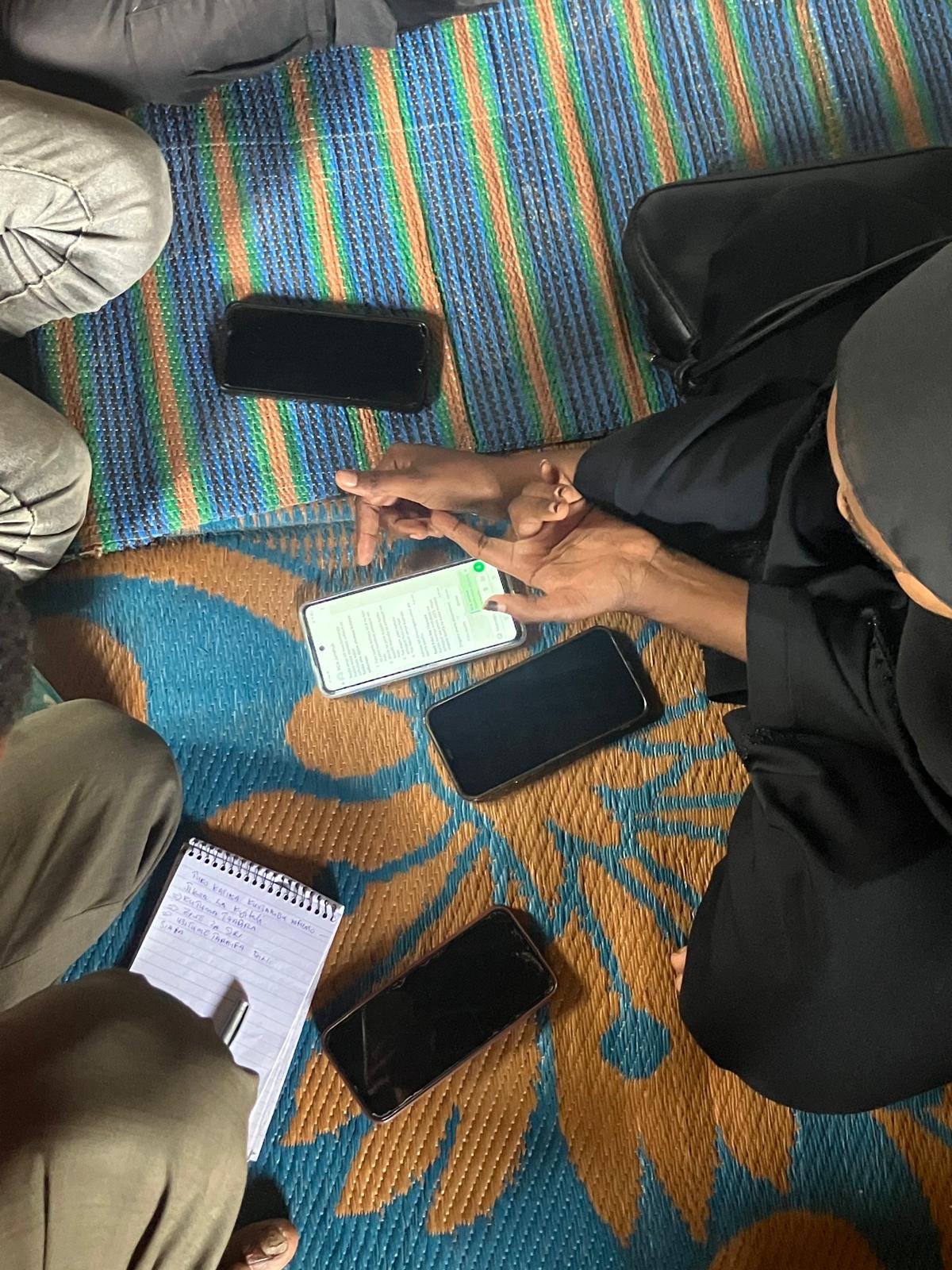Decidim on WhatsApp in Africa
In 2025, Voca developped a WhatsApp chatbot to use Decidim in a human aid context. The pilot was in Tanzania during a year which saw turbulent political elections and an internet shutdown. Here’s what we learned so far.
Bridging Civic Tech to Humanitarian Aid
Norwegian Church Aid received financing from Innovation Norway to strengthen participation in the humanitarian aid sector through digital innovation.
After an initial expert panel, Decidim was chosen among other options for several reasons. First of all, it is an existing solution with a wide-ranging set of features. Second, as an open-source solution, it guarantees against vendor lock-in and leaves space for future adaptations in other regions and use cases.
The Pemba Island, Tanzania, was chosen for a pilot. As a region without active conflict, and as it was already the ground for a pilot on inter-faith dialogues, it was considered a good match.
Additionally, the digital infrastructure in Tanzania is fragile. With daily loadshedding and mobile devices shared across several members of the same community, there are obviously no computers available.
Strong Stakes and Design Constraints
In humanitarian aid, understanding and identifying the needs of affected populations is a big challenge. Surveys are often answered by the same people (community leaders and elders), and unfortunately, don't always take into account marginalized voices. There is almost no participation by minor genders or religions, as all dialogues are held in person, by the community.
The Chatbot was well received by this group of women who are never invited to voice themselves publicly.
However, several other constraints quickly come into play in Tanzania: the fragility of the national power grid and the scarcity of internet connectivity. Moreover, nobody except the humanitarian field workers uses computers. Everybody uses smartphones and shares them.
Designing Civic Tech for Safety and Resiliency
One of the first things that struck us during our field research trip to Pemba was that everybody uses WhatsApp. Indeed, with very low connectivity, websites almost never load in Tanzania's mobile user experience, and impressively, WhatsApp is the only reliable messaging system when everything shuts down. So during loadsheedings, people still chat via WhatsApp.
Participants use WhatsApp, but humanitarian field workers need Decidim to oversee participation.
Our proposal starts with this constraint, as a WhatsApp chatbot. The Chatbot enables receiving the latest information from the Decidim platform used by Norwegian Church Aid, but also to participate: create an anonymous account, log in, vote, and submit proposals.
Our hypothesis is that by adapting our chatbot for anonymous participation and account creation, minorized voices will express themselves (gender minorities, youth, or religious minorities). Even in this context where some families share a single telephone, a given member of the family can join and participate anonymously via the chatbot when alone. In a social context where the only opportunity to speak is in groups, in front of the community, which is still very complicated for many voices, this may change the dynamics.
Lessons learned
Inspired by community faith leaders, who pinpointed inter-community conflicts during election times, we launched a participatory process called "peaceful elections", inviting participants to submit stories of inter-faith solidarity and constructive dialogue. However, in a country where every president in power since 1962 represented the ruling party, and with the latest reelected by a majority of 98%, silence about politics is a widespread behaviour. People do not have much to win and a lot to lose by expressing even the slightest political opinions.
"It's nice that you came over to listen to us, nobody ever asks us our opinion".
Strikingly, when returning a second time to Pemba to launch the project and to test the chatbot on the ground, many participants expressed gratitude, thanking us for our consideration and listening time, often adding that nobody comes to listen to them. In an unforeseen twist, the presence and attention to people living in Pemba was in itself perhaps the most political gesture.
Key takeaways
We managed to get the first 350 participants; this shows that onboarding participants works well even with strong connectivity constraints and no behavioural priming (we found out during this process that no one knows what a QR code is).
We did, however, encounter initial difficulties in contacting the users at first: WhatsApp actually detects automated messaging to new connections as spam, so we had to find a workaround consisting of pre-filling the first message in the conversation, so all the user has to do is send a first message to the chatbot.
Now, we are moving to a new strategy focusing on participatory economic empowerment and farming in communities with features that actually reflect the participants’ daily concerns: we enabled manual notifications to participants by admins to foster reactive interactions with the communities.
We are looking forward to a second pilot, which will take place in Zambia during the upcoming months.
Decidim Fest 2025
To wrap up, watch our talk at Decidim Fest (Barcelona, last November), where we introduced the WhatsApp chatbot.
Thank you Decidim for having us. See you next time!
— Guillaume for Voca
More:
The humanitarian aid program: https://www.kirkensnodhjelp.no/en/about-nca/for-contractors/protechtion
JamiiHub: https://nca.voca.city/
Our technical approach to creating the chatbot was presented at Decidim Fest 2025 here.
Our Chatbot’s RESTful API: https://octree-gva.github.io/decidim-rest-full/



